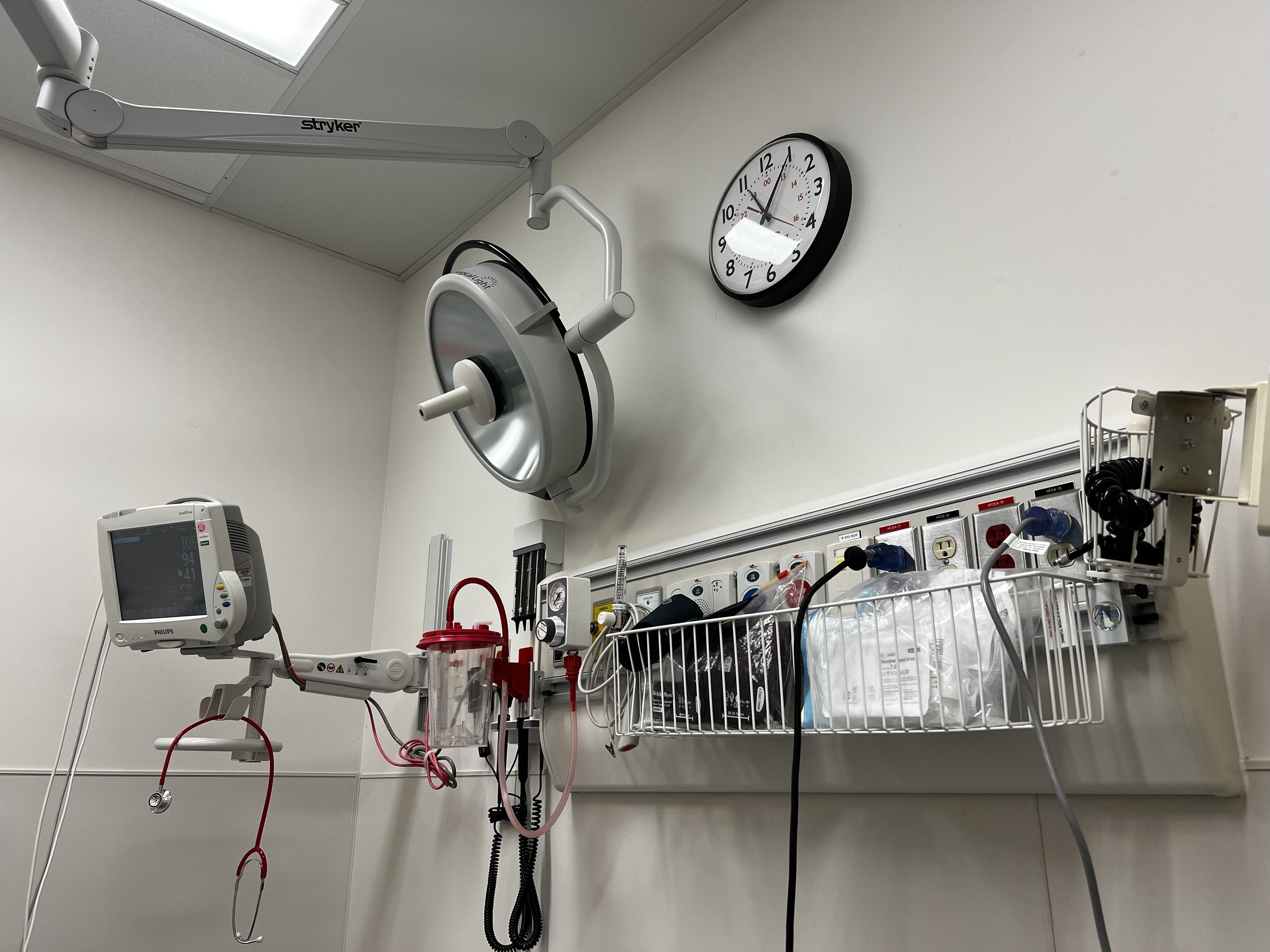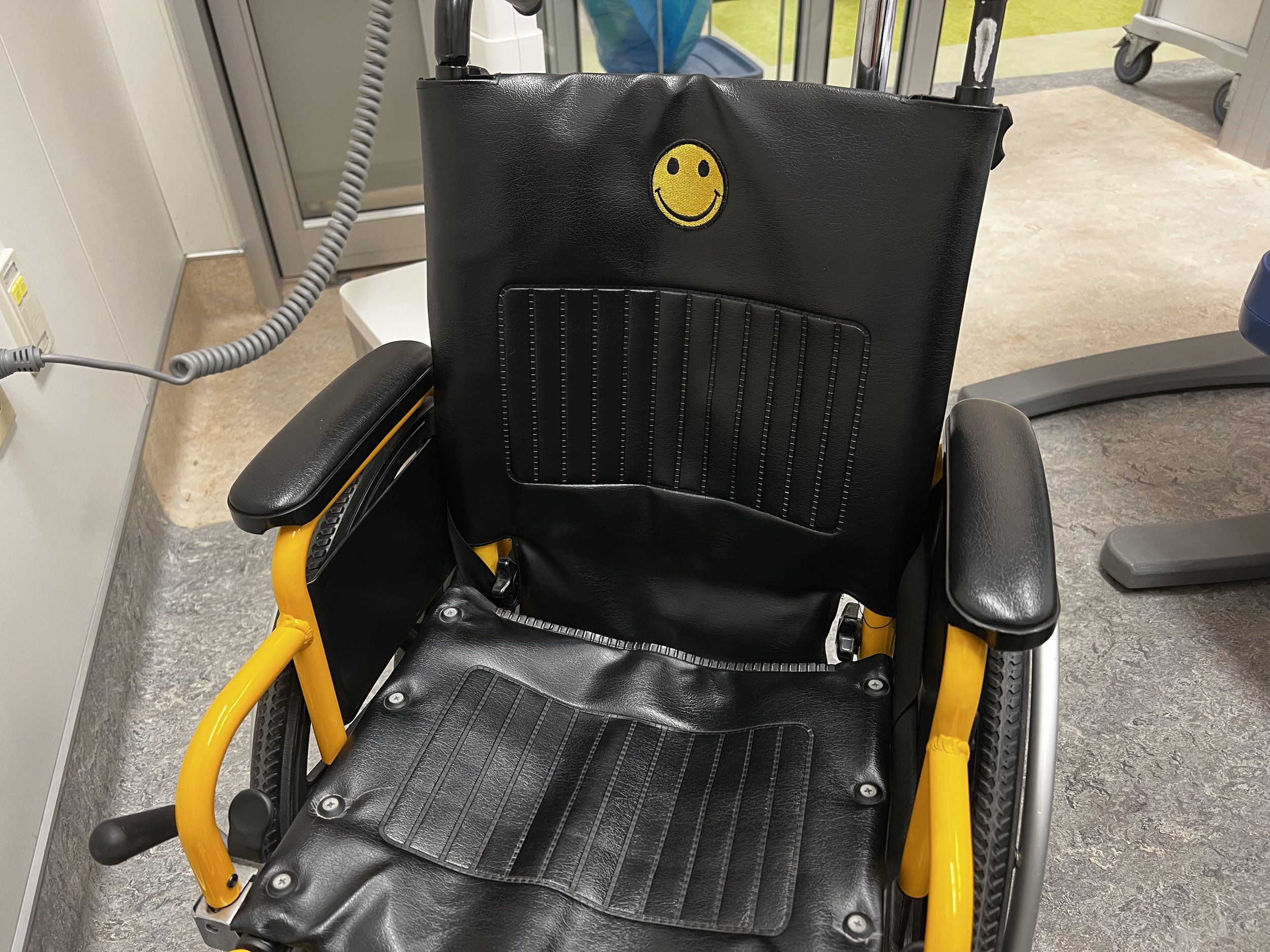A Night in the ER
The monster first came for me when I was a little kid. It wrapped its tentacles around my chest and squeezed, leaving me gasping for breath. Often these attacks also left me afraid and in tears. This monster is called asthma. Most kids see an empty field on a fall afternoon and the opportunity for play. All I could see was dust, pollen, and an inevitable asthma attack. It didn't take much running, and I'd be wheezing, out of breath, and in pain for the rest of the afternoon. I hated this monster so much that it's likely the main reason I never got into sports as a child.
I can also remember the first moment my doctor gave me a puff of an inhaler in his office. The nearly instantaneous moment of feeling my lungs open and being able to breathe felt miraculous. Two full puffs of the medication and the monster would fade away, almost like a puff of smoke. An inhaler would never be far from my side for years. I learned to play an instrument, grew a little, and for a brief moment, enjoyed running long distances. Eventually, asthma was no longer something I feared. It would re-surface every so often but would easily be beaten back. I haven't needed an inhaler in over nine years.
And then my son was born, and the monster returned…
Almost like some kind of family curse, this time returning to torment my boy. Like my parents, I could hear that all too familiar wheeze in his lungs. The medication has improved in the years since I first needed it, and for the most part, we've learned to manage my son's asthma effectively. Either my wife or I will give him some medication, help him calm down, and he goes back to normal.
Only it didn't work last week. The school had called indicating that he needed to be picked up immediately. When I arrived at his school, I could tell my boy was struggling. We did all the usual things at home, and nothing seemed to work. Finally, at bedtime, I managed to get him to fall asleep, but I've never seen sleep look so painful. At this point, he looked like he was suffocating. His heart was racing, and I knew then that my wife and I could not fend off this beast. We needed help urgently.
We quickly wrote a journal of everything that had happened that day and the different meds we gave him. Then, I bundled him up, put him in our car, and raced toward the hospital. I did so also knowing that any hospital I would go to would likely be busy. When we arrived, I picked him up and ran toward the emergency room doors through the parking lot. The staff member that greeted me gave me some instructions and a warning that the ER was full and we might have to wait a long time. After this, we visited the triage nurse; she took his vitals and read the notebook my wife and I had written before I came. The nurse had a good poker face, but it wasn't perfect; I could see her eye widen ever so slightly, which indicated to me that she was concerned.
"We need to get him treatment right now." was the first thing she said to us.
The mini wheelchair the hospital staff gave my son when we arrived
With that, my son and I were taken to a room, and I helped get him dressed in a hospital gown. A few minutes later, a fantastic doctor visited us, and he put some treatments in place to heal my son from this asthma attack. The beast loosened its grip on my son's breath, and he could breathe again. The hospital staff kept us there for several hours until they were comfortable sending us home. I drove home feeling incredibly grateful to live in a corner of the world where a parent can face these kinds of threats and not worry about how to pay for it.
Complaining is a straightforward exercise, and it doesn't require much effort. It comes easy for most of us. Our health care system is an easy target for our complaints. I'm not suggesting for a moment that we don't work towards improvements in our current system, but I'd rather take this opportunity to recognize the fantastic healthcare workers that serve in Alberta.
The staff that helped my son that evening were all incredibly professional, kind, patient, and caring. Yet, it was obvious to me that evening that they maintained these qualities under immense pressure. After all, there was a waiting room with about 40 people in it late into the evening. From what I could see, each patient received the same level of care that my boy benefited from that night.
I'm grateful for a healthcare system that helped protect my life all those years ago. I'm profoundly thankful today for a team that rallied around my son when his lungs were in trouble.
All of us have a responsibility to support health care workers any time we have an opportunity to do so. Let's never take them for granted.
Thanks for reading friend!

